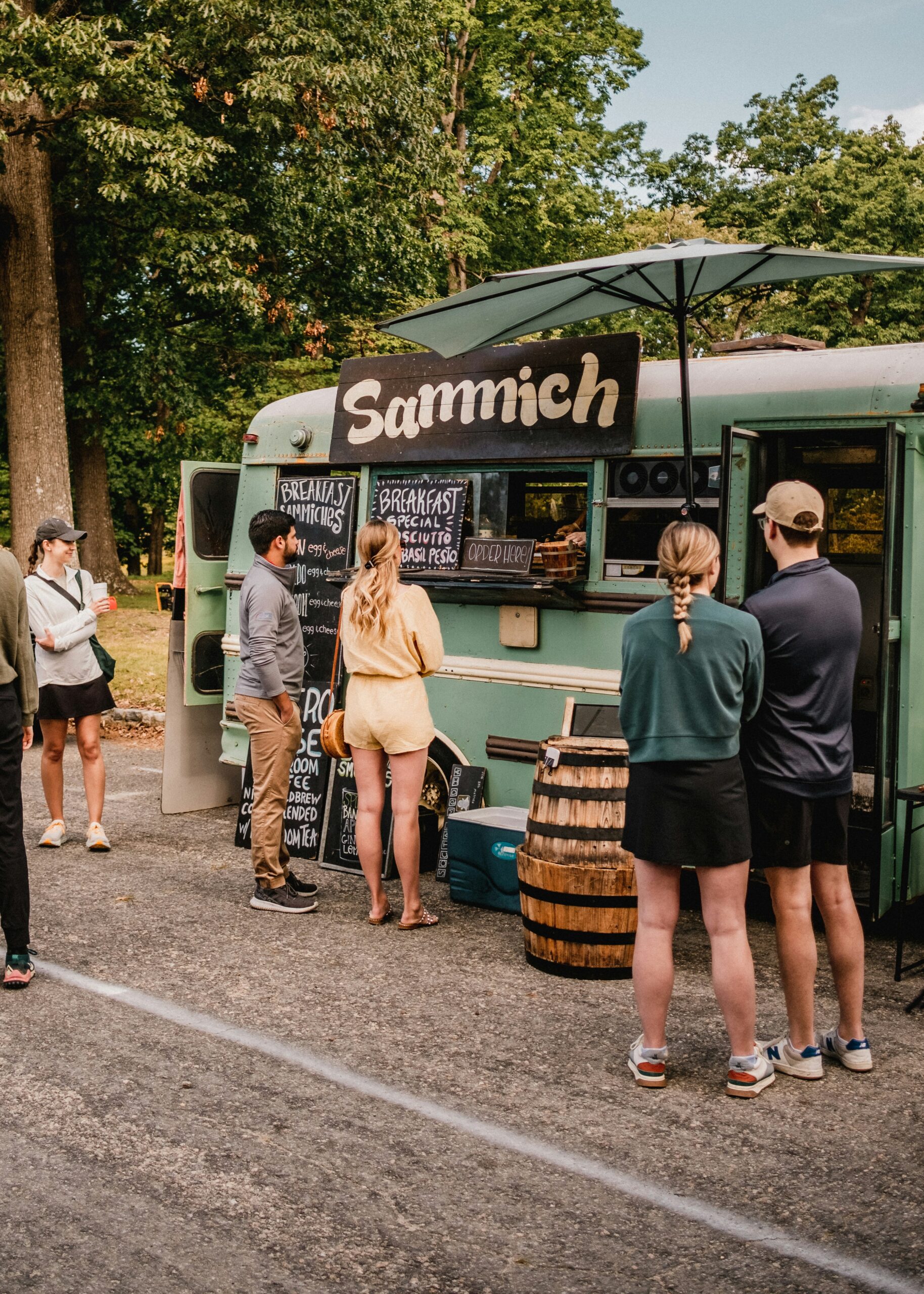Photo by Kyle Nieber on Unsplash
Starting a food truck business involves careful planning and consideration of various factors from permits and location to competition and menu planning. By understanding these elements and preparing adequately, you can set a strong foundation for a successful and sustainable food truck business.
KEY TIPS TO STARTING A FOOD TRUCK BUSINESS
By: FMM Contributor
Running a food truck can be an exciting venture, but it requires careful planning and understanding of various aspects. Here’s a comprehensive guide to help you get started and navigate the intricacies of the food truck business.
Permits and Licenses
To legally operate a food truck, you’ll need several permits and licenses. These include general business licenses, food service licenses, and vehicle licenses. Specific requirements and costs vary by location, but you can expect to spend between $1,500 and $20,000 on these permits (UpMenu) (Fit Small Business). It’s crucial to contact your local health department for food handling permits and your local fire department for inspections of your cooking equipment and fire suppression systems (Fit Small Business).
Getting a Location
Choosing the right location for your food truck is vital. Research potential spots where your target audience is likely to be, such as office complexes, universities, parks, or busy streets. High foot traffic areas are ideal, but make sure to check local regulations regarding food truck operations and parking (Step By Step Business) (Square). Sometimes, rotating locations based on the time of day or week can also be beneficial.
Storage of Food Offsite
Storage can be a challenge due to limited space on the truck. Many food truck operators use commissary kitchens to store food and prep ingredients. These facilities are licensed commercial kitchens that offer space for food storage and preparation, helping you maintain high standards of food safety and quality (Step By Step Business).
Competition
Understanding your competition is essential for success. Conduct thorough market research to identify what other food trucks in your area are offering and find a niche that sets you apart. Unique concepts, dietary-specific offerings (like vegan or gluten-free options), and high-quality ingredients can help you stand out (UpMenu) (Step By Step Business).
Cost of a Truck and Maintenance
The cost of a food truck can vary widely. A used truck might cost between $40,000 and $80,000, while a new, custom-built truck could range from $75,000 to $150,000 (Fit Small Business) (Square). Maintenance is an ongoing expense; regular servicing of the vehicle and kitchen equipment is necessary to avoid breakdowns and ensure safe operation. Fuel, repairs, and routine maintenance should be factored into your budget (Square).
Deciding on a Menu
Your menu is central to your food truck’s identity. Keep it flexible to adapt to customer preferences and seasonal ingredients. A smaller, focused menu can help manage food costs and reduce waste (UpMenu) (Step By Step Business). Ensure that your dishes are easy to prepare in a small space and can be served quickly to keep the line moving.
Financial Planning and Funding
Creating a detailed business plan is critical for attracting investors and securing funding. This plan should include an executive summary, market analysis, organizational structure, product line, marketing strategy, and financial projections (Business News Daily). Depending on your financial situation, you might explore options like crowdfunding, small business loans, or finding investors to help cover initial costs (Fit Small Business).
Maintenance and Sustainability
Maintaining high standards of food quality and hygiene is non-negotiable. Regularly train your staff on food safety practices and consistently monitor food costs and waste. Using sustainable practices, such as sourcing local ingredients and minimizing waste, can also attract environmentally conscious customers (UpMenu).
Conclusion
Starting a food truck business involves careful planning and consideration of various factors from permits and location to competition and menu planning. By understanding these elements and preparing adequately, you can set a strong foundation for a successful and sustainable food truck business.
LEARN MORE ABOUT A FOOD TRUCK BUSINESS
This article is researched from various sources including UpMenu, Fit Small Business, Business News Daily, and Square (UpMenu) (Fit Small Business) (Business News Daily) (Square).

